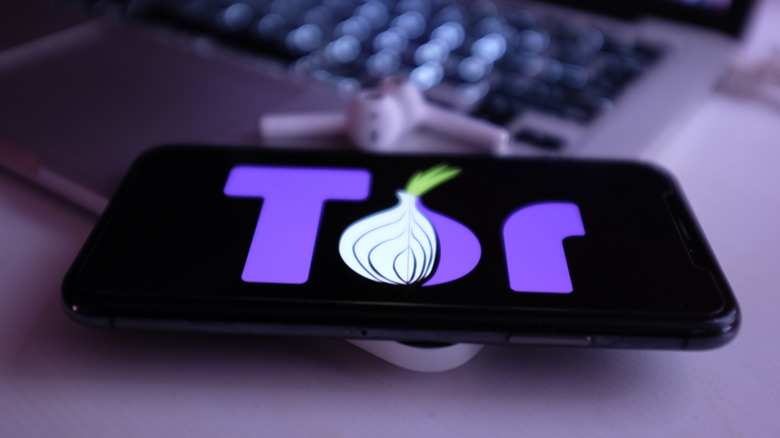3 Alternatives To VPN Services For Accessing Content Banned At Your Location
When you're hyped for a new Netflix show, about to watch a viral video, or tracking down a specific news story, the last thing you want is a message that says, "This content is not available in your region." Restricting access to content based on a user's location is a practice called geo-blocking, and it's something we've all encountered at some point.
Virtual Private Networks (VPNs) are one way to bypass geo-restrictions, as they hide your real IP address, encrypt your internet traffic, and connect to a server in a different country to spoof your location. But VPNs are illegal or heavily restricted in some countries, and streaming platforms are getting better at detecting them.
Plus, the best VPN services available in 2025 typically require a subscription, while configuring them can be too complicated for people who aren't tech savvy. The good news is that other effective solutions exist. If you can't or simply don't want to use a VPN, but need to access geo-restricted content, here are three VPN alternatives to consider.
Smart DNS services
Smart DNS (Domain Name System) services reroute your device's DNS queries through servers in different regions or countries, making it seem as though your device is accessing the internet from those locations. So if you're located in Germany but want to access content available only in the United States, Smart DNS can make it appear as if you're browsing from the U.S. and bypass restrictions.
Unlike VPNs, Smart DNS services do not encrypt your traffic or change your IP address. While there's no added security or privacy, a Smart DNS can provide faster connection speeds, which is pretty important when it comes to streaming. Plus, they are a budget-friendly solution, with reliable services available for as little as $4 per month. VPNs are generally more expensive, though pricing can vary significantly depending on the provider, features, and subscription length.
For example, NordVPN and Surfshark offer premium plans priced at $14.69 and $20.65 per month, respectively. In a nutshell, Smart DNS services don't provide additional privacy and security like VPNs, but they provide good speeds for streaming and are more affordable if you just want to access geo-restricted content.
Proxy servers
Proxy servers act as an intermediary between you and the internet. When you use a proxy, the requests sent from your device go through a proxy server before being forwarded to the destination website. That website sees the proxy's IP address instead of yours, allowing you to access geo-restricted content.
There are several types of proxy servers, but SOCKS (Socket Secure) proxies are often the best option for video streaming and similar activities where speed is important. Some basic SOCKS proxies cost as little as $1 per month (for a single proxy), while premium SOCKS proxies can cost upwards of $50 per month.
The difference between a VPN and a proxy lies mainly in security and coverage. VPNs encrypt all internet traffic from your device, while proxies typically only reroute specific traffic. Proxy servers are faster and more affordable than VPN services, so they can be great for streaming, but they offer very little in terms of security and privacy.
The Onion Router
Tor (The Onion Router) is a free, open-source software based on a principle known as onion routing. With Tor, your internet traffic is routed through a network of volunteer-run servers (nodes), making it extremely difficult to trace your online activity back to you. Tor is a fantastic privacy tool, often used by journalists, activists, whistleblowers, and people living under oppressive regimes.
The best and safest way to access Tor is by using the Tor Browser, which is specifically designed to work with the Tor network and is generally the most secure web browser you can use. It can be downloaded from the official Tor Project website for free and is available for Windows, macOS, Linux, and Android.
Tor is designed for privacy, not speed. It is slow precisely due to the way it routes traffic, so it's definitely not the best option for streaming. However, it is great when you need to access websites that are blocked or restricted in your country.



